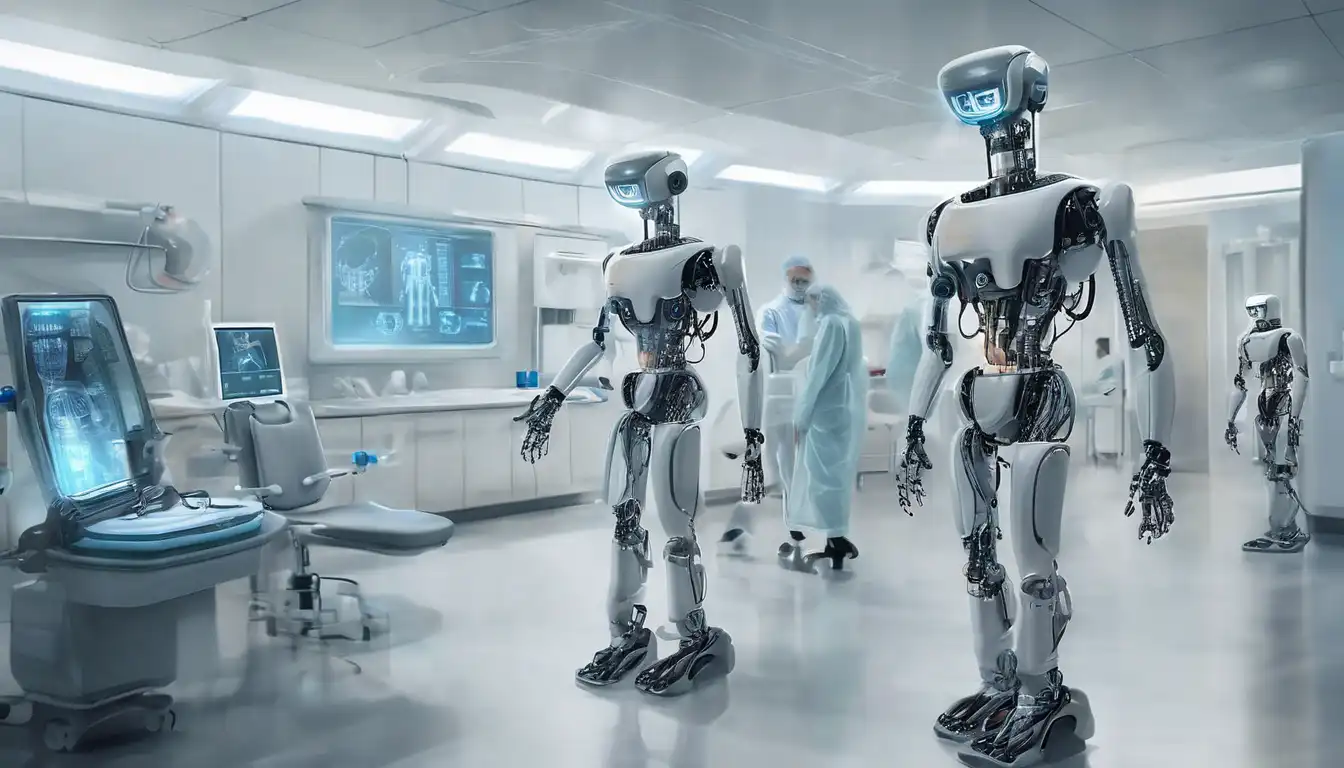The Next Era of Robotics in Healthcare
The integration of robotics into healthcare is transforming patient care, surgical procedures, and rehabilitation processes. With advancements in artificial intelligence (AI) and machine learning, robots are becoming increasingly sophisticated, capable of performing complex tasks with precision and efficiency. This article explores the future of robotics in healthcare, highlighting key innovations and their potential to revolutionize the industry.
Enhancing Surgical Precision
Robotic surgery has become a cornerstone of modern healthcare, offering unparalleled precision and minimizing human error. Systems like the Da Vinci Surgical System allow surgeons to perform minimally invasive procedures with enhanced dexterity and control. The future promises even more advanced robotic surgeons, capable of autonomous operations under the supervision of human doctors.
Robotics in Patient Care and Rehabilitation
Beyond the operating room, robots are playing a pivotal role in patient care and rehabilitation. From robotic exoskeletons that help patients regain mobility to companion robots that provide emotional support, the applications are vast. These innovations not only improve patient outcomes but also alleviate the workload on healthcare professionals, allowing them to focus on more critical tasks.
The Role of AI in Healthcare Robotics
AI is the driving force behind the next generation of healthcare robots. By analyzing vast amounts of data, AI-enabled robots can assist in diagnostics, predict patient deterioration, and personalize treatment plans. This synergy between robotics and AI is setting the stage for a future where healthcare is more accessible, efficient, and tailored to individual needs.
Challenges and Ethical Considerations
Despite the promising advancements, the integration of robotics in healthcare is not without challenges. Issues such as data privacy, ethical concerns, and the need for robust regulatory frameworks must be addressed. Ensuring that these technologies are used responsibly and equitably will be crucial in realizing their full potential.
Conclusion
The future of robotics in healthcare is bright, with innovations that promise to enhance patient care, improve surgical outcomes, and streamline healthcare delivery. As we navigate the challenges and ethical considerations, the focus must remain on leveraging these technologies to benefit patients and healthcare providers alike. The next era of healthcare robotics is not just about technological advancement but about creating a more compassionate and efficient healthcare system for all.
